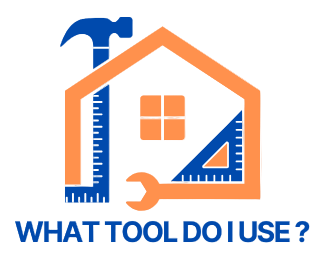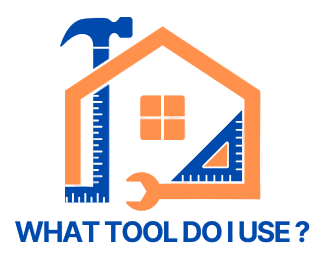Quick summary: 🧰 Choosing power tools for home DIY starts with understanding your needs and confidence level. Focus on building a small, reliable toolkit with quality essentials you’ll actually use, like a drill, jigsaw and sander.
To choose the best power tools for home DIY projects: Match each tool to your project type and experience level. Compare corded vs cordless options, check comfort and safety features, and invest in versatile tools that grow with your skills. 🛠️
Introduction: Why Choosing the Right Power Tools Matters ⚙️
Selecting the right power tools can make or break your home DIY projects. From drilling shelves to building garden furniture, using the correct tool ensures safety, efficiency, and better results. Whether you’re a beginner or a seasoned DIYer, knowing how to choose power tools for home use involves more than just picking the cheapest model or the one with the most features.
This guide breaks down the essentials so you can make confident decisions and build your DIY tool collection with purpose. 💪
📖 View Table of Contents
- Introduction: Why Choosing the Right Power Tools Matters
- Understanding Your Project Needs
- Key Factors When Choosing Power Tools
- Matching Tools to Specific Home Projects
- Safety First
- Build a Versatile Starter Kit
- Common Mistakes to Avoid
- Tips for Long-Term DIY Success
- 🛠 Useful Tools & Accessories
- Product Summary
- Read Next
Understanding Your Project Needs 🎯
Before buying any tool, understand why you need it. Different projects require different levels of precision, power, and control.
Define the Scope of Your Project
- Is this a one off project or ongoing DIY work?
- Do you need high precision or raw power?
- Will you be working indoors, outdoors, or both?
Examples:
- Light tasks: Hanging pictures, assembling furniture
- Medium tasks: Installing shelves, fixing decking
- Heavy tasks: Building sheds, cutting timber, laying flooring
Matching tool performance to project scale helps avoid overspending or under-equipping. 🧰
Power Tool or Hand Tool?
Sometimes a reliable hand tool is enough. If you’re only driving a few screws, a manual screwdriver might do. But if you’re drilling dozens of holes or sanding furniture, a power tool will save time and effort. ⚡
Key Factors When Choosing Power Tools ⚙️
Choosing power tools isn’t just about brand or price. Here are the key things to consider:
Corded vs Cordless 🔋
- Corded Tools: ✅ Constant power, ✅ Stronger, ❌ Limited mobility
- Cordless Tools: ✅ Portable, ✅ Great for outdoor use, ❌ Battery limits, ❌ Higher cost
Tip: For occasional indoor jobs, corded tools are ideal. For flexibility and frequent use, cordless tools are worth the investment.
Battery Voltage (for Cordless Tools)
- 12V Lightweight, great for basic tasks
- 18V/20V Best all-round choice for most DIY projects
- 20V+ Only needed for heavy-duty or professional use
Tip: Stick to one brand’s battery system so batteries interchange easily. 🔁
Tool Weight and Ergonomics
- Always handle the tool before buying.
- Check balance, grip, and control.
- Light tools reduce fatigue, but may sacrifice power.
✅ For more on this topic: Corded vs Cordless Power Tools: A Beginner’s Guide
Matching Tools to Specific Home Projects 🧱
Power Drill/Driver
Ideal for: Hanging shelves, assembling furniture, drilling into wood or drywall.
- Variable speed trigger
- Torque settings
- Hammer function for masonry
✅ Learn more: Your Complete Guide to Choosing the Best Drill for DIY Home Use
Jigsaw
Ideal for: Curved cuts, shaping wood or plastic.
- Orbital cutting action
- Variable speed
- Easy blade changes
✅ Learn more: How to Use a Jigsaw for DIY Cutting (Beginner’s Guide)
Random Orbital Sander
Ideal for: Prepping wood, smoothing surfaces, and finishing touches.
- Dust collection system
- Variable speed
- Quick pad replacement
✅ Learn more: How to Sand Wood with an Electric Sander
Oscillating Multi-Tool
Ideal for: Tight spaces, sanding, scraping, and fine cutting.
- Quick blade changes
- Multiple attachments
- Comfortable grip

Safety First 🦺
Choosing the right tool means thinking about safety. A powerful tool in untrained hands can cause accidents, so always prioritise protection. ⚠️
- Look for built in safety features (blade guards, safety locks, soft start motors)
- Wear PPE: Safety glasses, gloves, dust mask, and hearing protection
- Understand the tool: Read the manual or watch tutorials first
- Store tools clean, dry, and with blades or bits protected
✅ Learn more: How Do I Stay Safe When Using Power Tools for the First Time?
Build a Versatile Starter Kit 🔧
For beginners, these essentials will handle 90% of home DIY projects:
- Cordless Drill/Driver (18V)
- Orbital Sander
- Jigsaw
- Oscillating Multi-Tool
Common Mistakes to Avoid 🚫
- Buying the cheapest option: Low cost tools wear out faster.
- Overbuying: Start small and expand as needed.
- Ignoring safety: Never skip PPE or use your tools beyond capacity.
Tips for Long Term DIY Success 🌟
- Start small: Build confidence on simple projects.
- Learn from others: Watch videos, read blogs, or join DIY groups.
- Stay organised: Use toolboxes, pegboards, or shelves.
- Maintain your gear: Clean, oil, and store properly.
🛠 Recommended tools & accessories for this project
- RYOBI 18V ONE+ Cordless Combi Drill Starter Kit A versatile starter drill/driver kit with two 1.5 Ah batteries — ideal as the first power tool in your DIY setup.
- HYCHIKA 800W Jigsaw with Laser Guide Affordable, feature-packed jigsaw for curved cuts, shaping timber and tackling more creative DIY projects.
- Makita DSS611Z 18V LXT Circular Saw (Body Only) Lightweight cordless circular saw for fast, straight cuts in sheet materials and timber once you’re ready to step up.
- Makita DC18RC Charger & 5.0Ah 18V Battery Kit High-capacity 18V battery and rapid charger bundle that powers the circular saw and other Makita LXT tools.
Read Next 🔗
- Your Complete Guide to Choosing the Best Drill for DIY Home Use
- How to Use a Power Drill Safely (Beginner Guide)
- How Do I Stay Safe When Using Power Tools for the First Time?
- How to Sand Wood with an Electric Sander
- Beginner’s Guide to DIY Tool Safety






